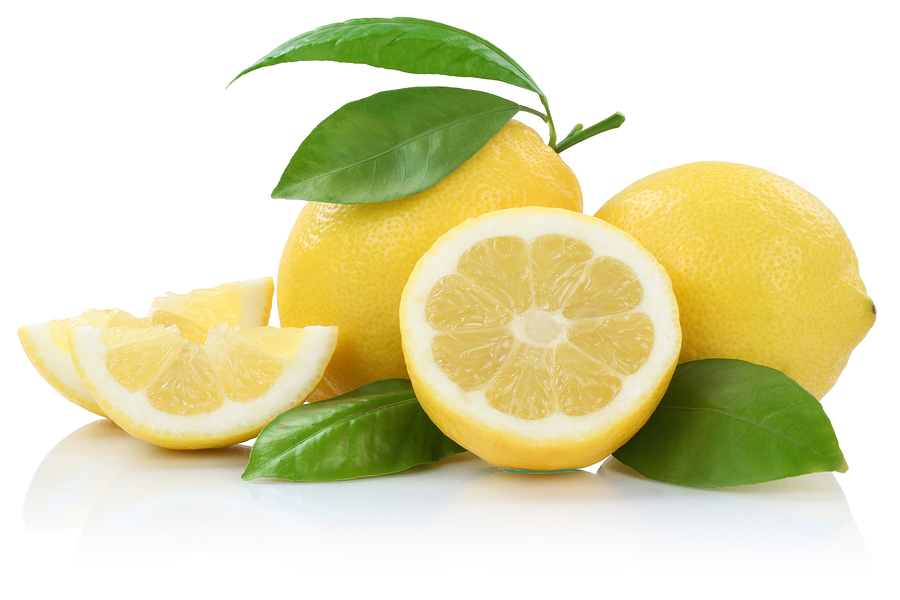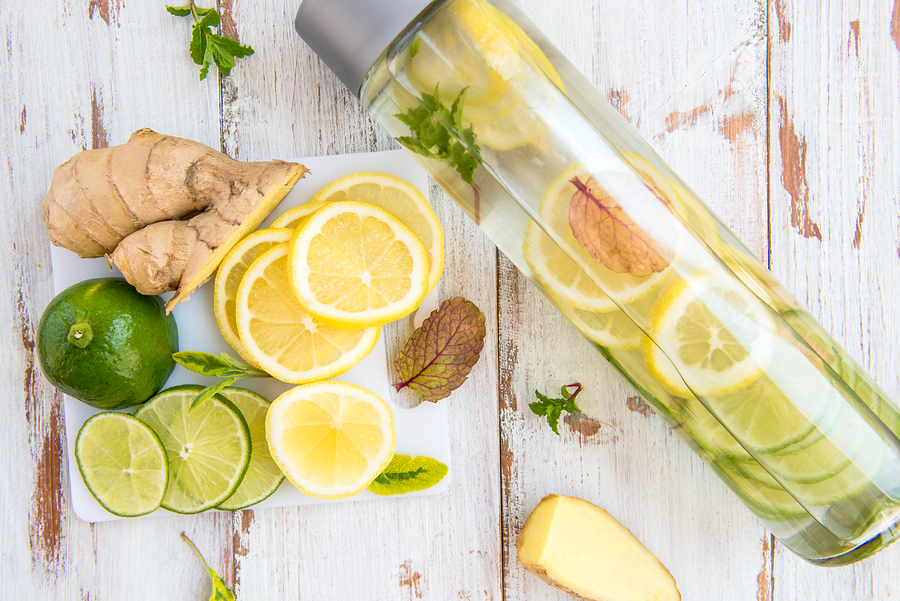- Make It Yourself Lavender Heart-Shaped Bath Bombs!
- 20 Things You Never Knew About “Down There”
- 12 Best Foods For Those Suffering From Arthritis Pain
- 12 Personal Hygiene Mistakes Almost Everyone Makes (Mom Never Told You About #4!)
- 15 Medicinal Plants And Herbs From The Cherokee People
- 12 Mind-Blowing Benefits Of Drinking Coconut Water During Pregnancy
- 12 Outstanding Winter Foods That Won’t Fatten You Up Like A Christmas Turkey
Lemons – A Very Versatile Citrus Fruit!
Apart from a myriad of uses around the house, the sometimes-underrated lemon has several beauty uses, and many nutritional health benefits.
As far back as the 1500’s, English sailors who spent months at sea, were introduced to lemons and oranges as a means to prevent scurvy.
Ship captains had noticed that when seamen had enough citrus fruits on board, they did not develop scurvy, which was characterised by anaemia weakness, gum disease, and skin problems.
Researchers now know that scurvy was, and still is, the result of a chronic lack of vitamin C, which is packed into lemons, as well as oranges.
RELATED: Easy Homemade Preserved Lemons Recipe Infographic
Some excellent household uses for lemons
Cleaning materials for the home can drain an awful lot of money from the budget. Making use of the outstanding cleaning and disinfecting properties of lemons can definitely help you to cut down on household spending.
Here are some useful tips:
- Instead of ordinary household bleach to handle stains on delicate fabric, soak in a mixture of baking soda and lemon juice before putting into the washer. Stains will disappear and the fabrics will not be damaged by the stronger chemical bleach.
- When doing the laundry, add 1 cup of lemon juice into each wash cycle. The natural bleaching action will get rid of stains and discolouration, and leave your clothes smelling fresh and clean.
- To get pots which have dulled over time back to their sparkling best inside and out, rub them all over with the cut side of a lemon, and rub dry with a soft cloth.
- If your garbage disposal is beginning to emit an offensive odour, throw some lemon peels down the drain to deodorize. You can do this as often as you like to keep a permanent fresh smell in the kitchen.
- Sometimes rice has a tendency to lump together after cooking. For fluffy, delicious rice, add a tablespoon of lemon juice to the water when it is boiling, and when done allow to cool for a while before fluffing up with a fork prior to serving.
- Put some lemon juice in a spray-bottle and spray on doorsteps, windowsills, and wherever you see ants have found a way into the kitchen. The lemon juice can effectively ant-proof the kitchen just as well as any pricy insecticide.
- You can use lemon juice to freshen up cutting boards, and remove odours from the microwave and the fridge.
KEEP READING: 31 Surprising (But Smart) Uses For A Lemon Infographic
There are, of course, many other ways to use lemons around the home. Lemon juice and water mix very well, and this means that you can add lemon to any water which you are going to use for any cleaning, including tiles, bathrooms, toilets etc.
Continue to Page 2
Beauty uses for lemons
Lemon juice has proven to be very useful for beauty treatment on a large scale. Here are some of the most popular ways lemon juice is used as a beauty treatment.
- The natural antiseptic in lemons is excellent for skin care. Good for treating acne, eczema, blackheads and wrinkles.
- The aromatic oil content is very effective when lemon juice is added to warm water for a relaxing, softening foot-soak to ease aching feet.
- Lemon juice applied to the hair and scalp before washing gives the hair a natural shine. It also helps to treat problems like dandruff and hair loss.
- A mixture of baking soda and lemon applied to the teeth using a cotton bud, is a perfect teeth-whitener. Leave on for a couple of minutes, then scrub off with your toothbrush, and rinse thoroughly.
- If your nails are dry and brittle from too many gel manicures, soften them up by soaking in lemon juice and olive oil. This mixture will also help with nails that have yellowed.
- Apply lemon juice directly to the skin to lighten age spots and other blemishes. Leave on for 15 minutes, and rinse off. Your complexion will be infinitely lighter and brighter.
READ MORE: 12 Little Known Lemon Beauty Benefits (We Love #4!)
Everybody wants to look good, but cosmetics promising the earth are expensive, especially those purporting to be natural. Lemon use is a great alternative for these pricy products.
Continue to Page 3
Health benefits of lemons
This yellow citrus fruit has several amazing health-promoting properties. Here are some for you to note:
- The high content of vitamin C helps to ease breathing problems such as asthma, and bronchial spasms caused by inflammation.
- Lemons, because of the high anti-bacterial properties, are excellent for fighting problems related to throat infections.
- Lemon juice is also a diuretic and can help treat arthritis and rheumatism by flushing out toxins and acid waste from the body.
- The immune system is fortified by the vitamin C content in lemons. It works as an antioxidant and helps to combat seasonal and other allergens which cause breathing problems that can lead to lung infections.
- Fresh lemon juice with a glass of warm water in the morning to start the day, is a very good way to detoxify the liver, cleanse the kidneys, and settle the digestive system.
- Studies have shown that lemon juice helps to keep you regular, and prevent constipation which can clog up the bowel and colon with poorly-digested food.
RELATED: Drinking Lemon Juice: Cure-All Or Risky?
Stocking up on lemons is one of the most cost-effective ways of investing in your health. Although the fruit itself may be seasonal in certain areas, lemon juice with the same nutritional factors are almost always available on store shelves.
Continue to Page 4
Are you using the whole lemon?
Most folks use only the pulp and juice of a lemon, and often discard the peel. Here are a few things about the lemon peel that you may not know.
- Lemon peels have about 8 times more vitamins than the lemon pulp and the juice. This includes vitamin C, vitamin A, beta carotene, folate, calcium, magnesium, and potassium.
- Consuming the peels helps to prevent osteoporosis, rheumatoid arthritis, and other painful bone conditions from developing.
- Lemon peels also play a role in lowering the LDL (bad) cholesterol and improving heart health.
- Get lemon peels into your diet by finely grating the peel, and add to salads, stews, or soup, and when baking lemon-flavoured cakes and cookies.
- You can also sprinkle finely-grated peels over your meals for a fresh flavour.
These are just some of the ways of adding lemon peel to your diet.
You can use your imagination to create many more ways to use lemons to help you live your best life – naturally.
References:



































